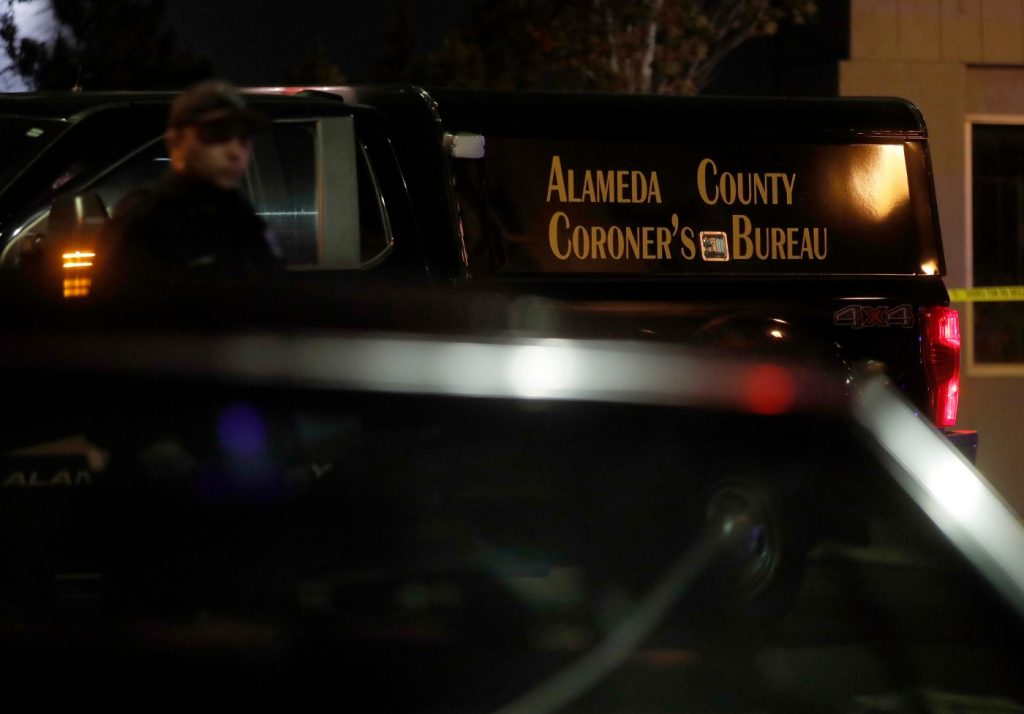OAKLAND — A 38-year-old man remains in jail facing charges that he murdered his girlfriend inside a local hotel room last August, despite his attorney’s attempts to convince a judge that she died by suicide.
Juan Gonzalez-Ortega, of Oakland, faces charges that he killed Delicia Elizabeth Ojeda, a romantic interest who Gonzalez-Ortega had both accused of infidelity and threatened shortly before her death, according to prosecutors. At Gonzalez-Ortega’s preliminary hearing, the defense argued Ojeda’s death was a suicide and that the location of her single gunshot wound proves it.
Ojeda was shot and killed inside a North Oakland hotel on the 300 block of West MacArthur Boulevard, at around 11:20 a.m. on Aug. 2. The forensic pathologist ruled she was killed by a single bullet wound from a gun that was held under her chin, which caused brain damage but didn’t kill her immediately, according to police testimony at the October preliminary hearing. The pathologist told police that both suicide and homicide were possible.
Those findings were consistent with the statement of a hotel guest who was staying in the next room, and testified he was getting ready to walk his dog when he heard “scuffling” followed by a gunshot wound in the adjacent room. Then he heard Ojeda “screaming for her family.”
“She was screaming for her mother, I believe. And her sister,” the man testified. “It was the type of screaming that you don’t want to hear.”
Oakland police Detective Thomas Quezada testified that the two had argued in text messages before Ojeda’s death, with her calling him “a coward” and him accusing her of infidelity with a man named Leo, who Gonzalez-Ortega also reached out to, Quezada testified.
“You’re never going to experiment with a genuine love like mines. You never will,” one message from Ojeda to Gonzalez-Ortega said, according to Quezada.
During cross-examination, Quezada testified that Ojeda had linear scars on both her wrists, but the judge didn’t allow defense attorney Alanna Coopersmith to ask the detective if that was from a prior suicide attempt, ruling that the question was asking Quezada to speculate.
At the hearing’s end, Coopersmith argued the prosecution had failed to eliminate suicide as a viable theory.
“The gun was flush up against the bottom of her chin. That’s, of course, consistent with suicide as we all know,” she said. “I don’t see a motive there to kill. I don’t see an intent to kill. I don’t see a confession.”
Judge Mark McCannon, though, noted other testimony that was backed up by video, which established that Gonzalez-Ortega left the hotel immediately after the shooting and covered his face in an apparent attempt to avoid being detected, that a scuffle predated the homicide and that the coroner said homicide and suicide were both possible.
“That’s what I have,” McCannon said. “There’s enough to hold him ot answer based on what I have heard.”
Additional resource: If you or someone you know is struggling with feelings of depression or suicidal thoughts, the National Suicide Prevention Lifeline offers free, round-the-clock support, information and resources for help. Reach the lifeline at 988 or see the SuicidePreventionLifeline.org


